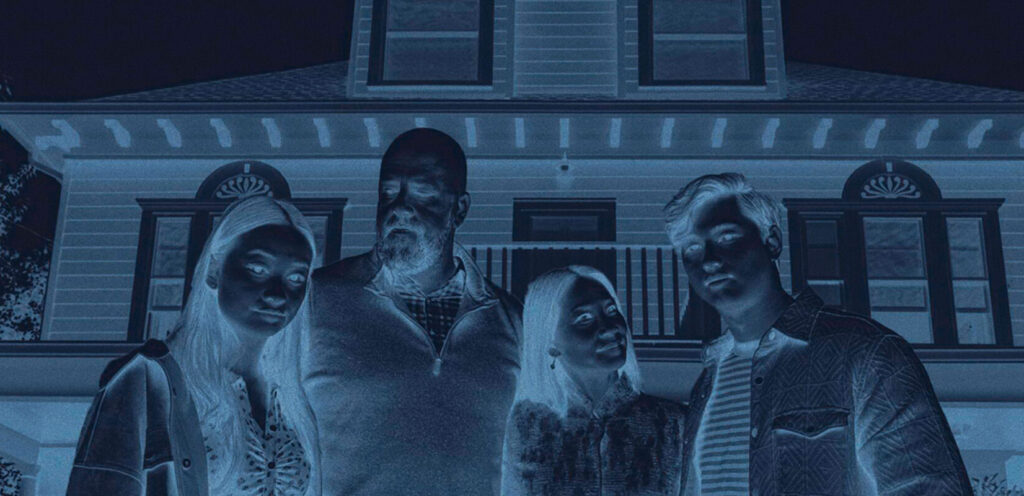Steven Soderbergh is no stranger to pushing boundaries. From the iPhone-shot Unsane to the interactive format of Mosaic, his films often lean more on experimentation than convention. With Presence, Soderbergh turns his attention to the haunted house genre, reimagining it cleverly. Presence unfolds the story entirely from the perspective of a ghost. While this approach creates a unique viewing experience, the film struggles to sustain its concept. It feels more like an ambitious exercise than a fully realized narrative.
The premise is deceptively simple: a dysfunctional family moves into a suburban home and begins to suspect they aren’t alone. What sets Presence apart is its decision to show the events entirely through the eyes of the ghost. Soderbergh uses this mysteriousness to create an atmosphere of quiet unease, relying on mood and tension rather than jump scares or overt horror. Ultimately, it feels more like a psychological mystery than a traditional supernatural horror flick.
Also, there’s much to admire in Soderbergh’s careful craftsmanship. The film’s subdued tone and slow pacing build an ominous sense of foreboding. For those willing to settle into its slow-burn rhythm, Presence offers a uniquely eerie experience. Yet this same pacing will likely alienate less patient viewers, especially as the film takes its time reaching a resolution. Even when the tension ramps up in the second half, the payoff feels muted compared to the buildup.
While Presence is undeniably ambitious, it’s a gimmick that only warrants one viewing. Without stronger characters or a more dynamic narrative, it struggles to leave a lasting impression.
The film’s greatest strength—its ghostly point of view—also becomes its biggest limitation. While the perspective is initially intriguing, the novelty wears off as the story progresses. The movie feels increasingly like a one-note gimmick, struggling to sustain the film’s narrative momentum. This is compounded by the lack of character development. Seeing the family’s life through the eyes of a ghost makes it challenging to fully engage with the family’s plight. We learn little about them beyond surface-level dysfunction, and as a result, their fate fails to resonate emotionally. Even the ghost, ostensibly the story’s most compelling figure, remains frustratingly enigmatic, leaving the audience with more questions than answers.
Overall, Presence is a testament to Soderbergh’s willingness to take creative risks. The film’s understated approach and unique perspective set it apart from other haunted house stories. Sadly, its execution ultimately feels hollow. While Presence is undeniably ambitious, it’s a gimmick that only warrants one viewing. Without stronger characters or a more dynamic narrative, it struggles to leave a lasting impression. The film offers an intriguing—if flawed—experience for fans of Soderbergh’s ambitious style.
Rating: 3/5 atoms

Presence hits theaters on January 24th.







